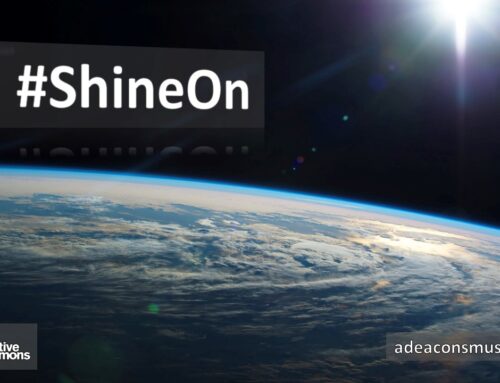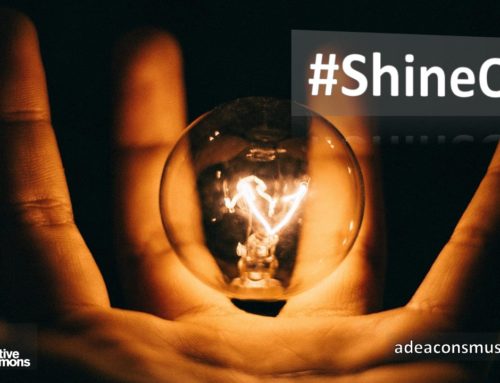There are many hopeful and amazing things about being part of a faith community. They range from the gifts that arise when exploring spiritual reflection and practices to entering places that endeavour to safely nurture diversity and dignity. Pretty great stuff, if you ask me!
A recent experience afforded me just one of those moments, when cynicism or apathy might otherwise whisper, which shone light into those shadow places we often ignore. I had the pleasure to be invited to attend a gathering of a recently formed group here in Winnipeg, which is intentionally engaging in what reconciliation might look like with our Indigenous friends, Sisters and Brothers. It was heartening to hear such a broad conversation cover topics that ranged from trauma to White Privilege, and solidarity to time.
Passion is a funny thing – it cuts through our agendas and distractions. It’s like Lego pieces, when they click and keep clicking! Pretty soon what looked like chaos takes on form and shape. And – if you stick with it – form takes on identity becoming a thing which a community has fashioned, if given enough time, by listening and reflecting.
So here’s my take away from what felt like the beginning of putting pieces together, which included blocks such as Time and (White) Privilege:
-
- For those who benefit from colonialism and capitalism, which my faith community called The United Church of Canada recognises is us, this stuff is hard work. It’s not – though it may include – academic or book learned. It requires looking deeply into a mirror, in order to spy the situation of our own souls, before we even imagine talking to others about the state of their own.One of the ways we can ‘ignore’ peering into this reflective portal, therefore, is utilising time to deflect the work before us. There’s a simple adage, if you will, that suggests where the focus of one’s attention goes so too is the world created that you see;
- Reconciliation is a lens that challenges the focus of those who have inherited the benefits that arise from Settler privilege. Reconciliation, however, neither just happens, nor is it simply an exercise grounded in acquiring just enough information to ‘get it.’ After all, how can we understand the trauma others have experienced, when we cannot acknowledge our own suffering that arises when we awaken to our role in the hurt others experience? And,
- Privilege – as expressed in time – allows us to control Reconciliation, as an intellectual act: in other words, we get to set the agenda. This act, however, may end up simply perpetuating another way to maintain the status quo. When time, when understood as a challenge to privilege, becomes unmoored and Reconciliation becomes scary.
- It’s scary because it means less talking (on our part) and more listening (to others);
- It’s anxious making, because in listening to others we may hear difficult and hard things;
- It’s disconcerting because these places of pain and tears may lead us to reflect on both our involvement and awaken us to our own vulnerability.; and,
- It’s uncomfortable because if we listen and hear that which the Spirit might be sharing through our Indigenous companions, we may need to change once we awaken to (right) relations.
Change is a historic constant. In this Christian community in which I journey, Creator is always with us in exile. For those who have confused faith with culture, however, change becomes the enemy. This confusion, I believe, must be resisted.
Power and change never play well together. That binary – and I admit I do not like binaries in general – leaves those who seek Reconciliation in a tight bind. Do we hold on to what we have or do we let go and let God?
As this recent experience ended, I’m certain those with whom I sat at table were inviting us to wrestle with the latter. It may be worrying to finally be unburdened of a load that we know limits embracing diversity and dignity. Letting go, ultimately, reveals a world wonder-filled, which dwarfs the time constraints we too often impose on ourselves …








Your reflections are most welcome!